Or how to get on in show business (for a short time) if you were a bit rubbish..
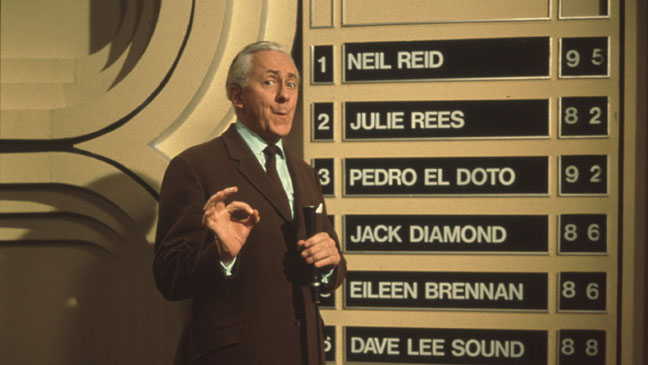
Many, many moons before we were subjected to the hideousness that is the deeply unpleasant Simon Cowell and his personal cash cow, The X Factor, we were subjected weekly to the hideousness that was the deeply unpleasant Hughie Green and his long-running ‘talent’ vehicle celebrating amateurism in all its many forms, Opportunity Knocks.
Any consideration of 60s and 70s TV must always begin with the rider: there were only three TV programmes to choose from. Bizarrely, there was probably a lot more worth watching in those days than in our multi-media, multi-channel platforms of today. However, few homes had more than one telly, the days of the portable (which rarely managed a decent picture anyway) were years away, so despite the good stuff that was on telly at the time, as a child, you were, almost literally, also a captive audience for some of the worst telly imaginable. An example of this ‘worst-telly-imaginable’ genre was Opportunity Knocks. Others included The Good Old Days, The Black and White Minstrel Show and It’s Val! (Doonican that is, the exclamation mark being the most exciting aspect of Val’s unchallenging, mind-numbing, MOR experience). Commentators these days bemoan the all-the-family-together viewing of those early days, but a hell of a lot of it was just awful. And it didn’t come more awful than Op Knocks with the most insincere, patronising, oleaginous and downright nasty of all TV hosts.
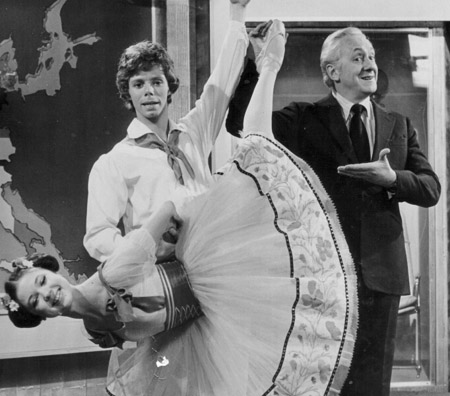
Hughie Green. A man whose gushing insincerity knew no bounds. ‘Yes folks, and I mean that most sincerely,’ he’d say every week, insincerely. It is no exaggeration that the success of Op Knocks went to Hughie’s head and before long he was commuting everywhere by helicopter in Radio 1 DJ style, having an affair with his producer, Jess ‘The Bishop’ Yates‘s wife which produced Paula Yates, using his clout to mess about with the Op Knocks format such as featuring short drama pieces and quizzes (as if there wasn’t enough of them) and worst of all, using the show for a piece of breathtaking right-wing political propaganda which he called ‘Stand Up and Be Counted,’ that included marching bands, Forces’ servicemen and women, Girl Guides and Boy Scouts, the estimable Wimbledon Operatic Society no less and, obviously, swathes of Union Jacks. Nuremberg rallies sprang to mind. On the 27th December 1976 a dumbfounded viewing public was subjected to Canadian Hughie Green’s diatribe on why the once proud UK had gone down the tubes due to strikes, financial borrowing, Socialism and, no doubt, the insidious influence of foreigners telling us what to do (i.e, the EEC). Didn’t we win the war for god’s sake? Strange how some things never change. Green’s hubris was, unsurprisingly, the beginning of the end for Op Knocks and for Hughie, but not before he could inflict a few more useless wannabes on us before the demise of the show the following year.
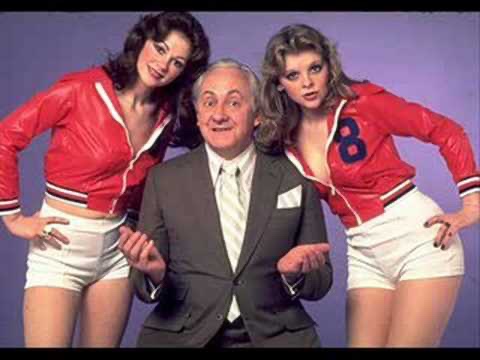
From 1961-1978 every Thursday at 7 pm, for a whole gut-churning hour, we’d be subjected some of the most inept, incompetent, dull and witless acts known to man or beast. With acts of such mediocrity featured every week, it seemed almost anyone could roll up for an audition and be successful. Mainly because they needed six acts each show to pad out the hour and a series would last for about 30 weeks.. On top of that, each act had a sponsor who would indulge in some gossamer-thin banter with Green before being unleashed on a suspecting public. The winning act would return every week until a new winning act was voted for.
Synonymous with the Opportunity Knocks voting system was the notorious ‘Clapometer.’ At the end of the show each act reprised part of their performance and the studio audience clapped their appreciation (or not). The ‘Clapometer‘ would then swing back and forth arriving at a score between 1 and 100. The winner in the studio would be the act with the highest score. Which meant absolutely nothing really. It was later revealed that a stage hand just waved the pointer randomly arriving at a score when the rapturous applause ended. But it was the ‘votes, votes, votes‘ that really counted.
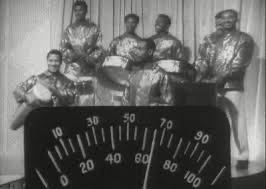
One does wonder how many votes it took to be triumphant on Op Knocks. To vote for an act (why could anyone be arsed?) it was necessary to a) find a post card, b) write down your three favourite acts IN ORDER (can’t have been easy as they were usually all rubbish), c) find a stamp and d) post it in a post box, all within three days of watching the show! In reality, it was probably only the friends and rellies of the acts who bothered to go through that palaver and a winning act could have been successful on about 100 votes. New World, a monotonous Aussie three-piece won Op Knocks for a number of weeks in the early 70s. They were later found out to have rigged the competition by sending in loads of bogus votes ensuring their continuing success on the programme. By the time they’d been rumbled they were well on their way, inexplicably, to five top 50 hits, their most successful, achieving a lofty number 6, was Tom-Tom Turnaround, memorable only for its lugubriousness. The charts were like that in the early 70s though ( see The Sad Demise of the Pop Singles Charts).
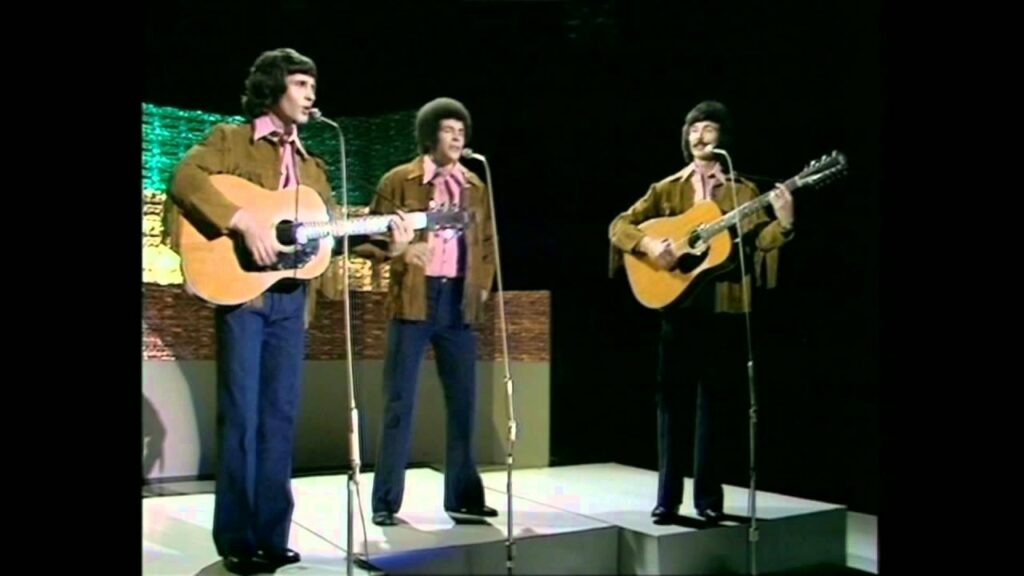
Like The X Factor, it only took a win on Op Knocks to ensure (short-lived) chart success. Who could forget Tammy Jones in 1975 who won for a whole 6 weeks? Well, practically everyone but then she had a no. 5 smash with ‘Let Me Try Again‘. Sadly for Tammy the listening public decided not to. That said, in 1976 she competed in the annual ‘Song For Europe‘ competition with a ditty entitled Life’s A Carousel, and was up against the easy listening might of Frank Ifield and Tony Christie. Phew! She came 6th. Poor girl was on an MOR hiding to nothing. Winners that year just happened to be unchallenging pop behemoths Brotherhood of Man with a song they called ‘Save Your Kisses For Me.’
There were acts who, for people of a certain vintage, were synonymous with Op Knocks. Acts of such inconceivable blandness are etched in the memory, whether we like it or not, like Mary’s Boy Child in a December supermarket. Take Neil Reid, for example. The cute wee laddie in the kilt from Motherwell who won the heart of every granny in the UK with his saccharine and honey infused ballad, Mother of Mine. Week after week after week……
Weirdly, wee Neil is still the youngest act ever to top the album charts which he did in 1972 with his eponymous LP. His blockbuster hit ‘Mother of Mine‘ reached no. 2 in the same year being kept off the top spot by the equally anodyne New Seekers‘ ‘I‘d Like To Teach The World To Sing’, an irritating anthem nicked from a Coke ad. Reid’s sugary-sweet ditty also caught the ear of Little Jimmy Osmond‘s producers who clearly thought this was exactly the family-orientated bilge a young thrusting Mormon should be expressing and put it on the B side of his alliterative smash ‘Long Haired Lover From Liverpool.’ Who bought all that crap? (See Rubbish Songs, Inexplicable Hits). Poor wee Neil’s career failed to take off and when his voice broke a couple of years later, there was only one route left for him: to become a financial adviser in Blackpool.
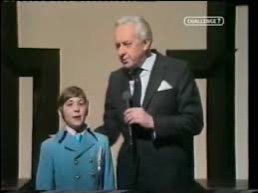
OK. There is this thing called the Law of Averages and how could a show which ran for such a long time with a conveyor belt of acts ranging from the average to the mediocre to a vast motherlode of awfulness fail to produce at least a few diamonds in the vast rolling expanses of rough? I’ll grudgingly admit a few acts did prove to be quite good and have some staying power. That said, certain acts proved themselves to be ghastly and, unfortunately, also had inexplicable staying power. (Yes, I’m looking at you Little and Large!) But let’s try to inject at least a tad of positivity into this unrelenting litany of atrociousness.
The wonderful Les Dawson first appeared on Op Knocks in 1967. Les Dawson may seem a fairly unfashionable comedian these days but unlike so many of the young comedians of the present who lack a funny bone in their body (yes, I’m talking about you Michael McIntyre ), Les could do everything. As well as writing many of his own gags, his monologues were not only hilarious but also hugely articulate, almost poetic, his comedy characters were brilliantly observed and his ‘bad’ piano playing never failed to make me giggle, no matter how often I heard it. It’s a fact that you have to be an excellent musician to be able to play the piano as badly as that. His radio shows, Listen To Les, are repeated regularly on BBC Radio 4 Extra and are well worth a listen. A fact about Les mentioned In his autobiography that I prefer to believe is that he claims to have begun his showbiz career playing piano in a Parisian brothel. How many OP Knocks contestants could compete with that?
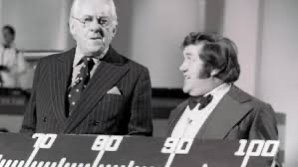
Sadly, few, if any, comedians on Op Knocks even approached the high standard set by Les Dawson. There were one or two, however, that were ‘distinctive’ to say the least. One of those was the one and only Freddie ‘Parrot Face’ Davies. His act was of such uniqueness, kids today would find it impossible to get their head around what his act actually was. After appearing in 1964 he went on to guest star in many TV variety shows such as The Des O’Connor Show, The Golden Shot (see Like A Bolt From The Blue..The Golden Shot), the surreal Sunday Night At The London Palladium ( see Tarbuck Memories: Sunday Night at the London Palladium and Cilla. To describe Freddie’s schtick would take up more space in this article than is probably justified, but fear not! I will return to Freddie ‘Parrot Face’ Davies soon and devote to him the analysis this unique performer deserves. ( see As Mad As A Ha’penny Watch: The Strange Case of 60s Comedians).
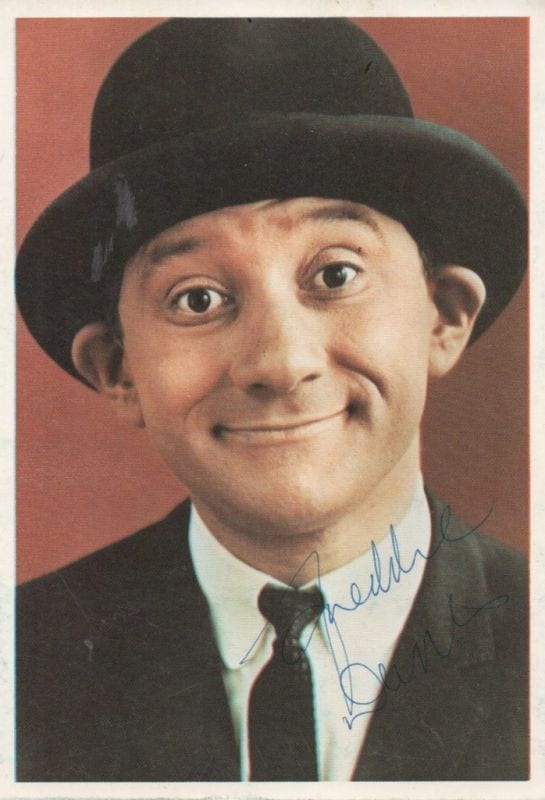
Another many times winner from the late 60s was Welsh songstress Mary Hopkin whose career was more interesting, arguably, than her music. A Welsh folk singer, she was one of Op Knocks most frequent winners. Shortly after her success on Op Knocks she was one of the first signings to The Beatles‘ plaything Apple Records, on the recommendation of Twiggy, in 1968 and she had a number one with her first release ‘Those Were The Days’, produced by Paul McCartney. So far so sixties. She represented the UK in the 1970 Euro Song Contest with ‘Knock Knock, Who’s There‘, missing out to reactionary Irish colleen Dana with her inoffensive Euro ditty ‘All Kinds of Everything.’ After a few more less successful hits and reported unhappiness with the direction McCartney’s production was taking her she split from Apple, married top notch record producer Tony Visconti and sang background vocals on a range of classic Visconti produced albums including Bowie’s masterpiece, Low. Despite dropping out of the high profile music scene at an early stage, Mary Hopkin’s Op Knocks experience was certainly significant. How many Opportunity Knocks contestants worked with McCartney, Harrison, Visconti, Eno, Fripp and Bowie (amongst many others)? Answer: one.
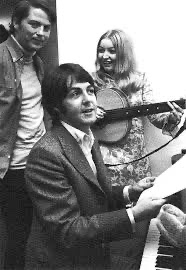
If subsequent hits were the measuring jug of Op Knocks success, some credit must go to Nottingham’s most famous sons, after Robin Hood and His Merry Men, Paper Lace. Winning over a number of weeks in 1973 and featuring that strangest of animals, the singing drummer, they had a number one hit with that most irritating of earworms, Billy Don’t Be Hero. Sadly for the Lace another band in the US, Bo Donaldson and the Haywoods, picked up the song and had the lucrative stateside hit. Paper Lace had the last laugh though and their follow up single, The Night Chicago Died got to number 1 in the US and number 2 in the UK. A third hit, The Black-Eyed Boys also had success in the UK but that was, as they say, their lot. Apparently different versions of Paper Lace tour the UK to this day, although one version for most people would have been more than enough. An amusing footnote to this story (well, I think it’s amusing) was that one of the members of Paper Lace after their success decided to go solo. This joker rejoiced in the name Carlo Santana and apart from a fleeting and unsuccessful appearance on the successor to Op Knocks, New Faces (See Tony Hatch: Composer Of The Soundtrack For The 60s And 70s), faded swiftly into obscurity. Just think though, with the addition of one extra consonant he could have sold millions of records by default. Maybe that was his plan.
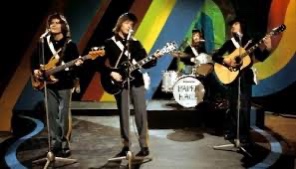
But pray silence for the Op Knocks powerhouse that was Berni Flint. And no, I didn’t mis-spell his name. Berni still holds the record for most wins on Op Knocks when in 1977 he was voted back for an interminable 12 weeks! The former window cleaner from Lancashire went on to have a monster hit with the slightly verbose, ‘I Don’t Want To Put A Hold On You‘ which reached number 3 in the hit parade. His follow-up ‘Southern Comfort‘ went the way of most Op Knocks follow-up singles and scraped into the top 50 at number 48. But we hadn’t heard the last of Berni, no Sirree, and he popped up on Sunday morning TV presenting Pop Gospel in the late 70s. Sitting through an edition of this programme sounds even worse than sitting through an edition of Op Knocks. If you were to add His Holiness Cliff Richard into the equation as well as ubiquitous 70s ITV producer Muriel Young (See Bowie: The First Time (Or Loving The Alien)), then we have an ITV music programme of quite awesome ghastliness but good on our Berni for securing the gig. I wonder if Op Knocks‘ producer and presenter of the awful quasi-religious Stars On Sunday, Jess ‘The Bishop’ Yates pulled a few strings for him? We’ll never know. Then in 1985 he co-presented the children’s TV show Mooncat and Co with a host of British well known C-list faces such as Pat Coombes and Pam Ayres. Soon after this Bern’s star fell but he had a decent run for his money as Op Knocks winners go.
Occasionally Op Knocks attempted to go upmarket in occasional Green flights of fancy. This was rarely successful as the great viewing public really didn’t want to sit and listen to Beethoven when they could be watching a Russian Dance troupe from Dorking. There was one exception to the rule, however. Wolfgang Plagge was an 8 year old Norwegian child prodigy pianist who played Mozart and other classics and appeared on Op Knocks‘ ‘Viking Special‘ in April 1970. Yes, that’s what I said, ‘Viking Special.’ This was Hughie trying to shake things up a bit and the ‘Viking’ element was a few dancers from Finland, a singer from Sweden and two separate ballet dancers from Denmark. This classical dance-heavy edition would not have excited the Anglo-Saxon natives until the appearance of Wolfgang Plagge. It was not so much the fact that he was playing classical piano faultlessly but more about the fact he was only 8 years old. And if the Op Knocks viewing faithful liked something, it was a child star. Remember wee Neil and the tragic wee Lena Zavaroni and bugger what they were doing, because weren’t they cute? Little Wolfie eventually appeared on the Royal Variety Performance, another long running monument to brain-numbing tedium, and was led on to the stage by a tuxedoed Hughie Green. This kid could play Mozart, Beethoven and Liszt but Hughie clearly felt he couldn’t walk on to a stage in a straight line and start playing by himself without his guidance. Hughie had to get his oar in in front the boring Royal dignitaries.
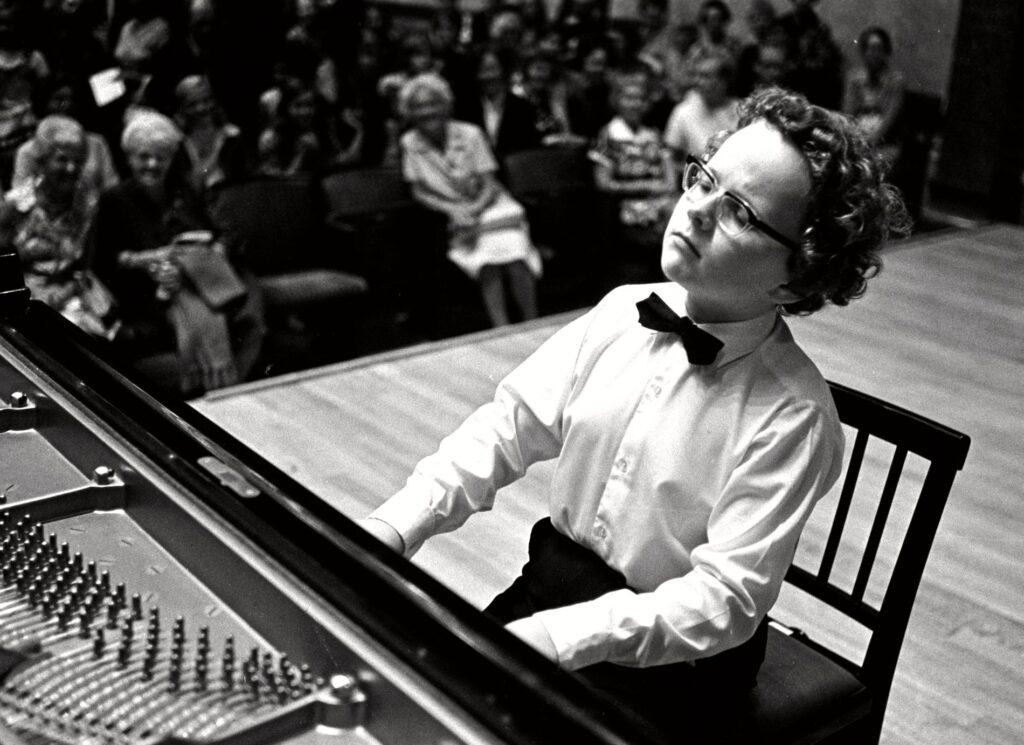
It would be rude to discuss the Hughie Green years of Op Knocks without paying respects to that most Op Knocks of performers, the legendary Bobby Crush. With his neat coiffured hair, brocaded suits and cheeky wink, Bobby was the darling of the Op Knocks‘ target audience. His unchallenging brand of tinkly piano MOR went down a storm and in 1972 he won for a staggering 6 weeks. He went on to play the London Palladium, countless summer seasons in rain-swept coastal resorts, a string of successful albums with Mrs Mills-esque titles like All-Time Piano Hits, 35 Piano Pops and Honky Tonk Favourites followed and, weirdly, he even starred as Frank N. Furter in The Rocky Horror Show. Bobby Crush is the ultimate Op Knocks success story. He hasn’t stopped working in over 50 years and everyone over the age of 50 remembers Bobby. And there’s more, he even wrote the most irritating pop single of all time, I Wish I Could Fly by Keith Harris and Orville (See The Lost World Of TV Ventriloquism). Hats off to Bobby Crush, a true entertainer in the nicest possible way. Maybe even giving Russ Conway a run for his money?
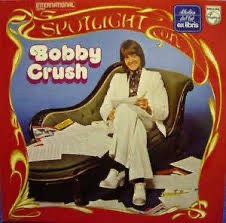
That said….there is one other Op Knocks performer who even outdoes the Mighty Bobby in terms of summing up what that show was all about. Step forward Tony Holland, The Muscle Man!
Tony Holland was a bodybuilder and in 1964 he appeared on Op Knocks and flexed his muscles rhythmically to the instrumental ‘Wheels.’ For 6 whole weeks he was voted back to perform the same act which he then repeated at The Royal Variety Performance. God knows what Brenda would have thought being confronted by a semi-naked muscular man flexing his Adductor Longus at her. Like Crush, anyone over the age of 55 will remember Tony Holland and should they be lucky enough to hear the tune ‘Wheels‘ suddenly playing in the background, 7 out of 10 of these , probably male, individuals will start flexing their muscles in the most bizarre of ways. I know I would.
Now It’s easy to take the piss out of Op Knocks for all its awfulness and it’s unpleasant presenter Hughie Green, and its endless parade of Russian dancers, out of tune singers, occasional animal acts (Su Pollard was once beaten into second place by a performing dog), and unfunny comedians but there was, at least, an honesty to it completely lacking in the talent shows of today, particularly the dreadful X Factor. At least Op Knocks featured performers purely on the strength of an audition and they were real people, while it’s well documented The X Factor plucks its finalists from stage schools and drama colleges. The auditions are a sham and really only used to ridicule particularly delusionally bad singers. Essentially neither Simon Cowell, Louis Walsh or the execrable Cheryl Cole (or whatever her name is these days) have any interest in or knowledge of music. All, however, are interested in making money and furthering their celebrity careers. Cowell and Walsh’s ‘skills’, if you could call them that, are of a business nature. They know the sort of rubbish that will sell, at least in the short term. Op Knocks was from a time when TV wasn’t used to shamelessly fill a producer’s bank account but merely to ‘entertain.’ And, yes, much of Op Knocks was rubbish but many acts went on to make a decent living because they believed in what they were doing, rather than the young wannabes who now only want to be ‘famous.’
But despite my derogatory tongue-in-cheek comments, it’s hats off to Opportunity Knocks, despite all its shortcomings it did something The X Factor will never do. It gave The Great British Viewing Public honest, down to earth, unvarnished entertainment.
And I mean that most sincerely folks…..
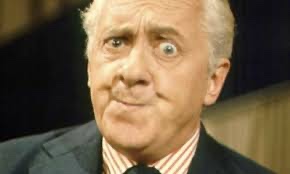
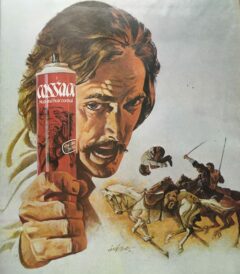
Actually Mary Hopkin song at the Eurovision was ‘Knock Knock who’s there’ not Those were the days.
You’re correct of course. Schoolboy error on my part. Many thanks!
The Coke song “I’d like to buy the world a Coke” came after the New Seekers song. I was there and remember it well. Can you disprove me with release dates for both?